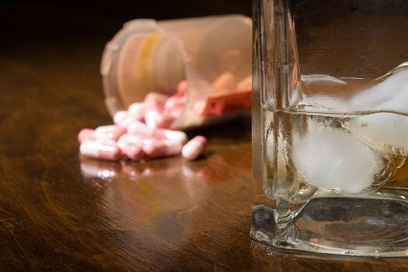Numerous medicines abound on the market today. They come in all shapes and sizes and are available in various brands. With this scenario, it can be hard to know which ones are safe to take.
Many people often rely on over the counter (OTC) drugs to cure common illnesses. Those who have certain conditions, however, may need to take more than just one medicine at specific times of the day.
But did you know that it’s not always a good thing to mix OTC drugs and take them with liquids other than water? Here are some of them you should avoid.
Antihistamine and Grapefruit Juice
A research done at the University of Western Ontario in Canada has shown that citrus fruits and grapefruit products may have an effect on medications inside your body due to the chemicals they contain. Specifically, the flavonoid compound in grapefruit juice called naringin can interfere with the body’s ability to absorb drugs.
In the case of the anti-allergy drug Allegra, for example, taking it with grapefruit juice can lower the amount of the drug that goes into the bloodstream. This makes the medicine ineffective. As such, it is advised that people taking this OTC drug should only drink water instead.
Alcohol and Acetaminophen
Acetaminophen is often used as a pain and fever reliever because it is mild in the stomach. It is also a common ingredient in cold remedies and even prescription painkillers such as Vicodin.
Being a common ingredient, it is possible for people to get overdosed with acetaminophen which can lead to acute liver failure. Taking alcohol can worsen the condition.
Medical experts say drinking alcohol three times a day or more and taking the medicine can possibly cause live failure. A milder ingredient ibuprofen is a better alternative although it can still irritate the stomach when alcohol is present in the body.
Milk and Anti-UTI Medicines
Medicines prescribed for urinary tract infections (UTI) should never be taken with milk, yogurt or orange juice fortified with calcium. The reason is that milk or yogurt can affect the ability of the stomach and the bloodstream to absorb the drug ingredient Cipro. When this happens, the antibiotic will not work well inside the body and the bacteria that causes the infection will become more resistant to the drug.
So for those taking ciproflaxin or levofloxacin, for instance, it’s best to just take water along with the drug and wait for a few hours before consuming milk and other daily products.
Caffeine and Xanax
The experts advise that the drug xanax (prescribed for those suffering from anxiety) should not be taken with beverages that contain caffeine. This is because caffeine can counteract the effects of the drug. Xanax, together with Ativan, are intended to lower a person’s anxiety and calm him or her down but if caffeine is introduced in the body, it can cause adverse reactions including palpitations, insomnia and agitation. The age and weight of the person are also contributing factors.
Image via drugfree
Originally posted on September 25, 2013 @ 11:10 am
